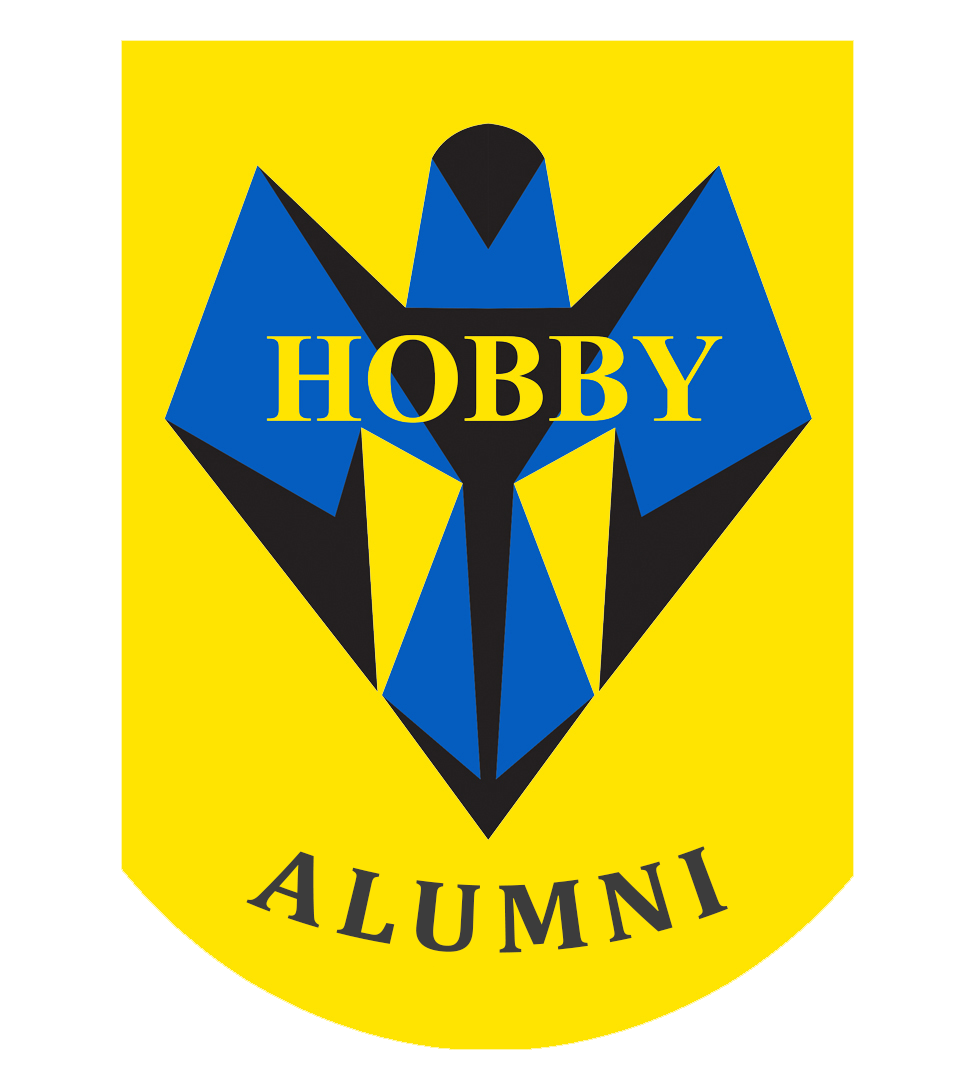TEMULUN Buuveibaatar, Co-Founder of Bharmoney - A Mixologist Reshaping the Drinking Culture in Mongolia
Interview by Bulgan Enkhbat. Photos by Suniko.
Get to know Temulun Buuveibaatar (aka Tee Buuvei), Co-founder of Bharmoney events & VIM Acid Bar. Fluent in English and Mongolian, Tee studied Psychology at Stansfield College in Singapore; Drama at CSVPA, UK; and Drama at Rose Bruford College, UK. A proud college dropout, Tee plays piano professionally and she found her passion for the art of mixology by living and working in Singapore, London, NY and DC. Tee is an up and coming mixologist aiming to change the drinking culture in Mongolia.
Full name: Temulun Buuveibaatar
Hobby Alumni: 2012 (at Hobby: 2002-2012)
Higher Education: Psychology at Stansfield college, Singapore; Drama school in Cambridge school of Visual & Performing Arts,UK; Drama school in Rose Bruford College, Sidcup, London
Languages: English, Mongolian
Sector: Hospitality
Countries Lived In: Germany, Mongolia, Singapore, the United Kingdom, and the USA
Current Workplaces: Freelancer, Bharmoney events, Fat Cat Jazz Club
Past Workplaces: Canvas Bar in the UK, Translate Cafe Bar in the UK, Dirty Martini in London, OZ Restaurant and Bar in D.C, VIM Acid Bar in Mongolia
Frequented Website: www.punchdrink.com
Current phone: iPhone X
3 Favorite Restaurants or Coffee shops in UB: Let’s go with a coffee shop? - Chirun Coffea, Ulaanbaatar coffee, Esperanto
3 Books To Recommend: Sophie’s World by Jostein Gaarder, On the road by Jack Kerouac, The Strange Library by Haruki Murakami
3 TV shows to recommend: Friends (watched at least 12 times), Code Black (the most accurate medical tv show), Haunting on Hill House
3 Songs You Are Listening To Most Right Now: Ciscero- good to know, Phantom Thread - House of Woodcock, Chaka Khan - Like sugar
3 Apps To Recommend: MIRO, UB Cab, Collect
3 Podcasts or YouTube Channels To Recommend: A book and A Cocktail, 88rising, Peaceful cuisine
EDUCATION
How many years have you studied at Hobby School, and where have you studied before and/or after Hobby?
Since pre-school until graduation in 2012, so total of 11 years. My brother Dagvanorov Buuveibaatar also studied at Hobby.
What kind of a student were you?
I wasn’t a hard-working student, but a smart student. A troublemaker to be honest (giggles).
“I used to participate in a lot of piano competitions during high school, so I couldn’t attend any other extracurricular activities and I missed out on a lot of school. ”
Can you name piano competition awards and prizes you won?
I’ve participated and won 4th place in "Jeunes Talents" International Piano Competition (2010) in France, 1st place in "Jeunes Talents" International Piano Competition (2011) in France, 4th place in International Piano Competition (2010) in Portugal, 2010 year's Best Youth Golden Medal (2010), and Mongolian Youth Development Centre Golden Medal (2011).
What were your nicknames at Hobby school? How did it become Tee?
I was always called Temu, but I remember in first grade or second grade I was called “The Terminator” mostly because I was a tomboy. I would fight the boys and stuff. Eventually moved on to Tee. Tee is easier to pronounce than Temu or Temulun. However, one time someone called me Te (laughs).
Anything you would do differently if you went back to high school again?
Nothing, I wouldn’t change anything. It was one hell of an experience. Everything that happened in high school makes sense now, if I change something the outcome might be different. Everything happens for a reason and it shaped me to become who I am today.
What’s your fondest memory in high school?
In high school I really liked planning the events. I participated in English plays like “Much Ado About Nothing” by William Shakespeare, which was a creative event and it was one of the fondest memories of high school.
I completed my pre-school and first grades when Hobby School was located at the former Zaluuchuudiin Soyoliin Tuv (currently the HUB innovation center). I remember my first day of my second grade so vividly, because it was the year we moved to the new white building. Everything was new and different, i.e.: fresh paints on the wall, all the lights were new yet dark, etc.. It took me a while to get used to it. I felt gloomy as it was all very new - a peculiar feeling.
Also, another memory comes to mind. It was when our music teacher was sick or left, I don’t really remember the full details, but I do remember our Principal Oyuntsetseg substituting for her. That moment when she was playing Bach’s symphony and explaining it passionately while she was playing it just got to me; and I knew I wanted to be passionate about whatever I did in the future.
What was your favorite class and teacher in high school?
Music class and physical education. Let’s not forget our English class thanks to Tony. He pushed his students to accomplish more, even when we got 100% test scores, he would expect us to exceed that point with quizzes and easy tasks, puzzles to receive extra credit. Before Tony, it was Bota, an inspiring teacher who made me love learning the English language.
Also Maitsetseg, our Dean of Academic Affairs, Middle & High Schools. Since she was the Dean, everybody was scared of her, but I always had a comfortable relationship with her and liked her a lot. Whenever she would ask me a question, I would always be comfortable enough to tell her the truth and say what I did. It was a very family like relationship.
When did you start playing the piano?
I don’t even remember how long I’ve played the piano. My piano teacher was Dolgorsuren. I became one of the two students recommended by her from all her students. That’s when I realized I shouldn’t stop playing the piano.
“I was a very artistic student. I used to take violin, ballet and French lessons and I missed a lot of school during high school. The way I learned things was a little different from most students.”
But it worked out for the best and I learned to do things on my own terms. I preferred to do things with my hands, and it was one of the key factors of how I went into bartending and mixology.
How did learning piano shape you?
Musical education is the most important education you can get at a young age. Obviously, you are never late for it. But the fact I learned artistic principles also helped me well in my life. Whenever I tell people that I play a musical instrument it was always perceived as a great skill regardless of your profession or major. It just shows how important it was.
“Principal Oyuntsetseg taught us the importance of musical education. It just shapes you as a person. A better person. More emphatic. More passionate. More open. You see things differently. You become more patient. ”
It's all kinds of things. It’s not necessarily only classical music, but all forms of art.
What influenced you to choose your major and university for your bachelors?
I missed out on a lot of school work because I would travel for competitions. I’ve always had two choices in my life: theatre/music or psychology. I wanted to study a combination of both. Back then I had a higher chance of going to a psychology school, so I applied to Stansfield college in Singapore and lived in Singapore for one year.
“I earned a certificate from Stansfield College in Singapore and I can officially become an assistant to a psychologist if I want to (laughs). I was supposed to elect my specialty the next year, but I decided to drop out. ”
I took a gap year and weighed my options for other schools. I traveled to the US and back home to Mongolia.
After my gap year, I researched and applied to Cambridge School of Visual & Performing Arts (CSVPA). I dropped out from there also and instead I got into one of the top drama schools in the UK Rose Bruford College for my bachelors degree, majoring in acting.
Mongolians didn’t have enough qualifications to go straight into bachelor’s academia, therefore I completed my foundation courses as it is a preparatory course for university level. The course is almost entirely practical in nature, although increasingly elements of art and design history have been introduced, and it is considered sufficient to qualify those who pass it to move on to a degree course without further study.
Did you get scholarships?
I received a 80% scholarship from the CSVPA, which covered a total 80% of the tuition fee. Hence living expenses such as housing and additional expenses had to be covered by me. I wasn’t expecting any scholarship to begin with, so I was surprised that they offered me a scholarship based on my application and video audition submission. Since I was planning on majoring in acting, all the prominent students were required to send in video of them acting. It was a very diverse school and the fact that I was Mongolian helped with my scholarship offer.
What was it like to study in the UK?
Cambridge, UK, is a small city where you can walk from one end to the other end in an hour. It had elder and vibrant student population thanks to various schools there. At first it seemed boring and small, but it was a quiet nice area to live in. I should mention the Eagle Pub, which is one of the oldest inns in Cambridge dating back to the 14th century. It had great fish and chips and it was always packed with guests. All the famous alumni and scholars used to go there.
Also a Stephen king novel adapted movie was released by the time I was in Cambridge. I remember watching the movie and recognizing the streets, which made me feel like I was living in that movie. It was cute. Stephen King has his own table at the Eagle Pub, and he would visit regularly whenever he was in Cambridge.
My apartment was on one side and the train station was on the other. I would listen to music and walk around the city.
“Honestly, I have more memories of London than Cambridge as London is livelier, and I would commute there and spend the weekends there. ”
How was Singapore compared to Cambridge/London? How long did you live in the US?
Singapore is fun when you are travelling. It is a nice calm place to live if you have a steady high paying job. Cambridge - if you are a retiree. There are so many students that make a whole mess out of the city. It is not my first choice to live. London is more home for me and I would love to go back to London. It has so many characters and flavors. There is always something interesting every hour or minute.
New York seemed too dirty for me. I would live there for a short period of time. DC was quite boring. It was the American version of Cambridge. It was more of a family place where you can work and raise a family there.
What other options did you have besides the university you got into?
I never really had options or even looked for options. I researched all the requirements for the school, and I worked hard for it. I never really worried whether I got accepted or not. If I didn’t get accepted then I would have explored other options or took another year. I got into all three schools I wanted to be enrolled in, but dropped out from all. Now if I think back about it, it all worked out.
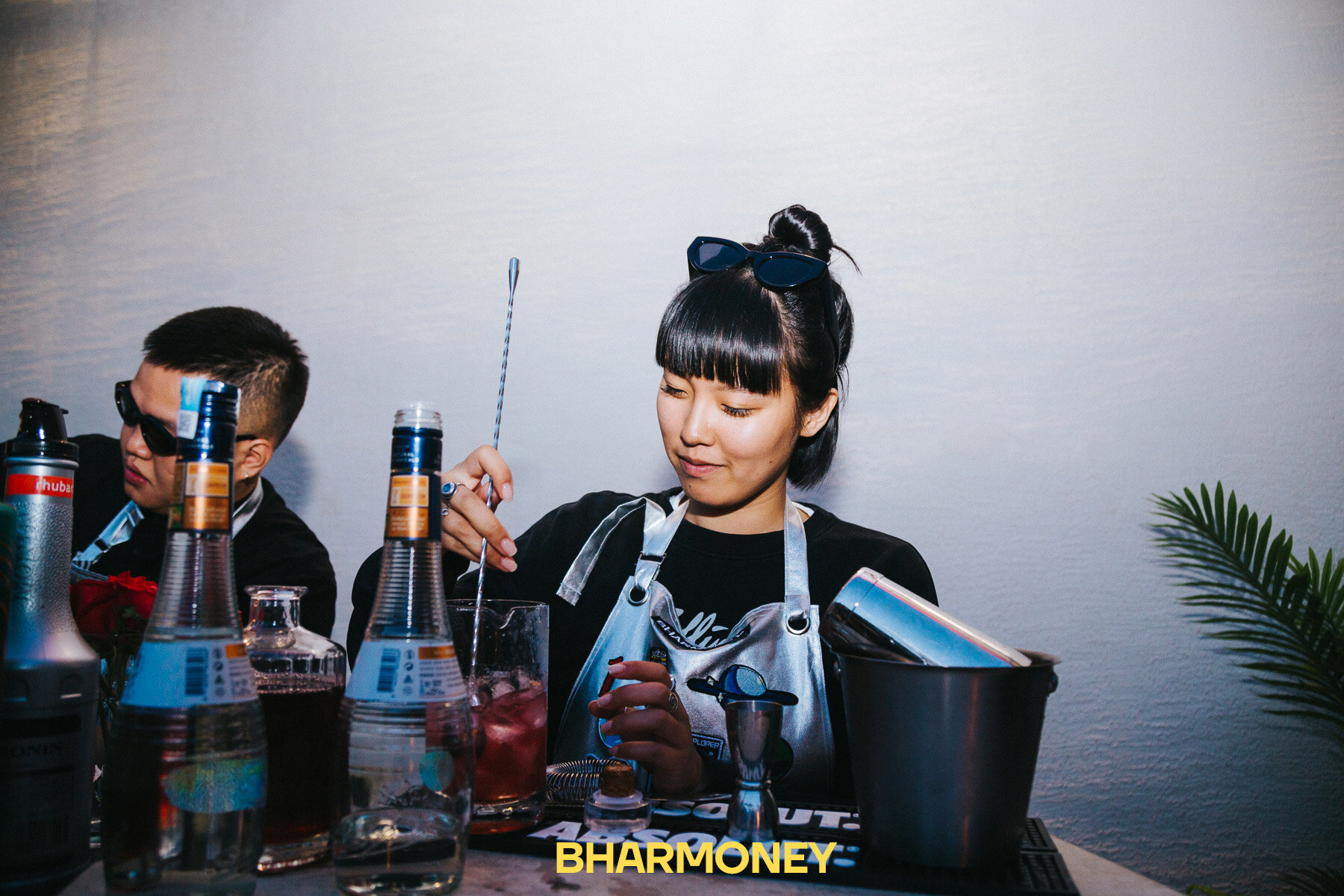
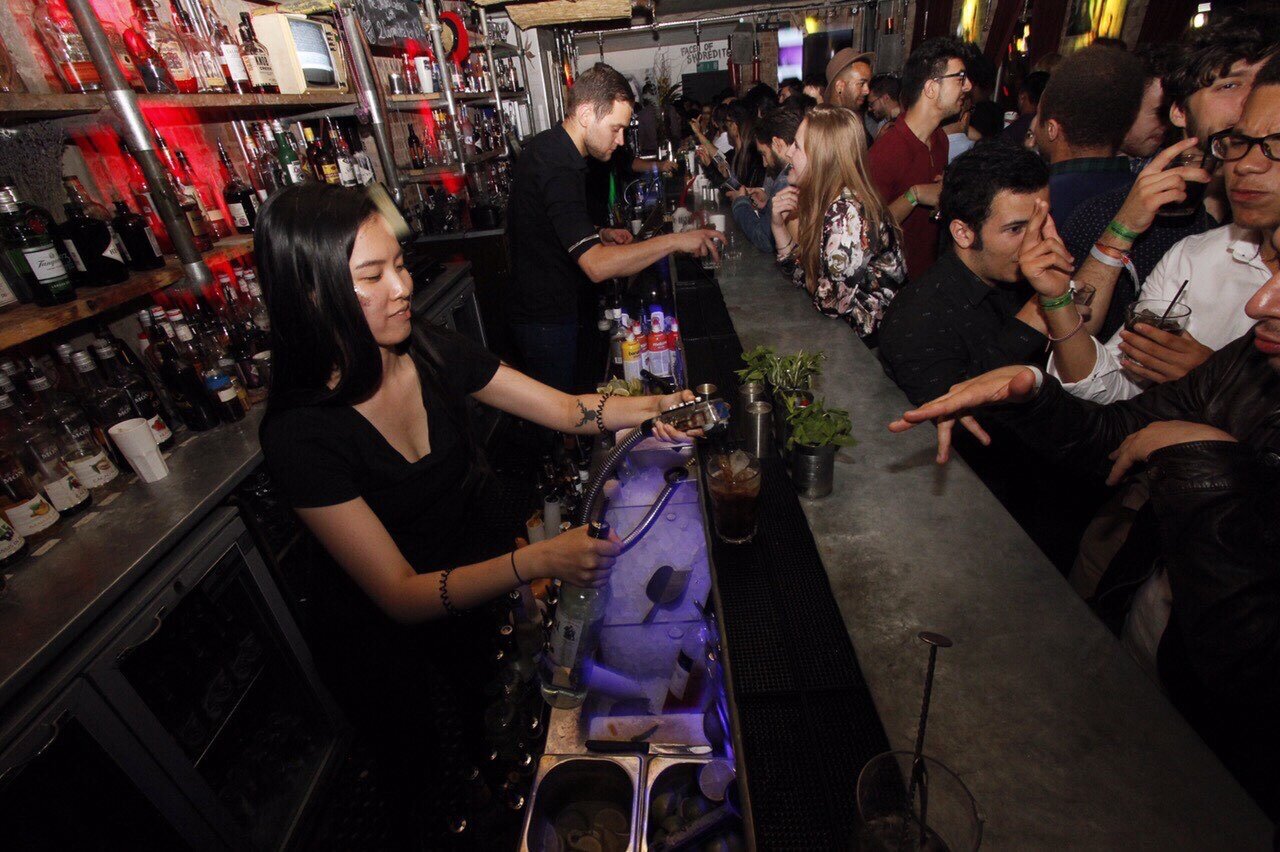
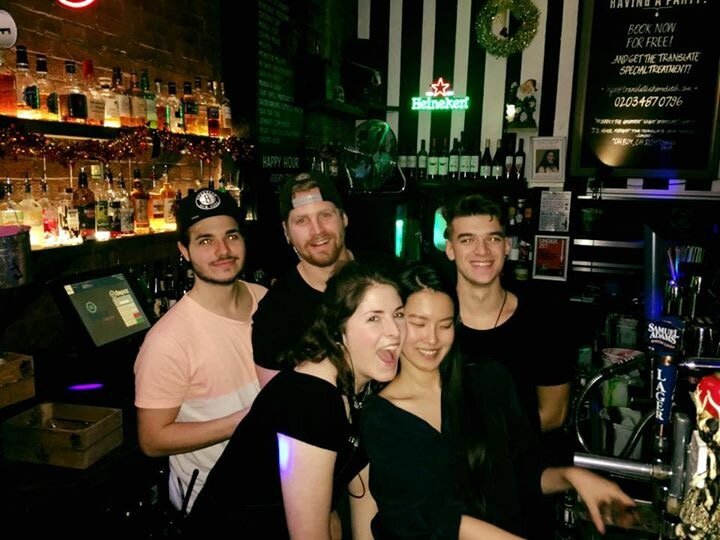
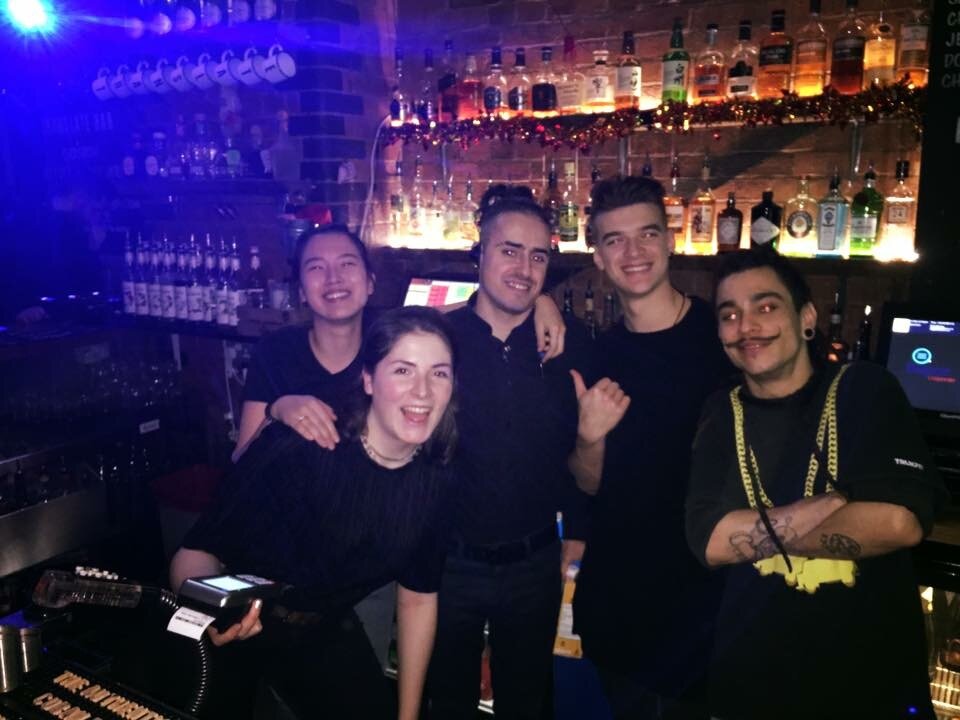
You used to bartend part-time and study full-time. How did bartending affect your school life?
Bartending did take its toll on my school life. Now I realize I wasn’t mentally prepared for the acting school. It was much more than I expected. People took it too lightly. They thought it's just like Hollywood acting where you just show up on stage and look pretty. In reality, it is very emotionally draining.
“Acting job requires vigorous work and it was restraining me. I had to go through a lot of psychological issues that came with it as well. Whenever I took on a role, if the character was depressed, or had any mental problems, I was taught to study them, be them and become them. ”
I took the character studies too personally in a way. It was associated with that fact that I was a bit immature as well at that time. I didn’t have enough life experience to understand. No matter how much reading or learning I did, I couldn’t change the fact I was inexperienced in life. I was simply not ready for it. Hence, drama school is one of the things I would love to go back to. Not at the moment, I have prior engagement and goals to fulfill.
During my drama school I was working as a bartender and I had to make a choice. It was either work or school. Now that I think about it, I know I made the right choice by choosing work. I dropped out of all 3 schools.
CAREER
What were your first paying jobs?
It’s an interesting story! I remember I had very little pocket money and I walked around London looking for a bartending position. I wanted a part time job that was interesting, so I walked into a bar called Canvas in London near the Shoreditch area. The manager asked me to make a cocktail for him. I made mojito, the only cocktail I knew how to make. It was only my second time making the mojito and I failed miserably. But luckily, the manager was drunk and it was purely coincidental. The following week, I received a phone call asking me to fill in a bartender who quit unexpectedly. I was excited for the opportunity and I enthusiastically agreed to fill in the shift.
“Back then (in London) I didn’t have any prior experience bartending nor the training to do so. Before my first shift, the manager asked me if I could drink, more precisely if I could handle my drink. It was rather a weird question but I proudly answered “I am a Mongolian, and I can handle my drinks” (laughs). ”
It was a crazy day. The manager, accountant, and owner all came up to me giving me drinks to test whether I can handle my drinks. The drinks didn’t affect me at all because I was working and sweating. When the night shift ended everybody was happy with my work performance and offered me the position permanently. I received my first 40 pounds after the shift was over.
One thing that I take pride in is the fact that I am a fast learner. The fact that it was a Friday night was beneficial for me as I wouldn’t have been making any complicated drinks. I was getting orders and passing it onto the other bartender. I was only doing the simple drinks like whiskey on the rocks, or gin & tonic, etc. I was calculating the prices, and changing the money very fast. The management saw that as a plus, I think. I worked there for a couple of months and I moved on to my next bar called Translate, which was a café during the day and cocktail bar at night. It was right next to a hostel and you would meet new people every day.
One day it hit me that I was doing the same thing but at the same time I wasn’t. It felt like I was living a completely different life everyday. Even though it was the same Friday night, the drinks I would make are different, the people would be different. All the stories they would tell were different and everyday felt like I was watching or taking part in a new movie.
I loved all the small details of the work I had to put in. It was a manual labor but at the same time it was a delicate work as we were serving something that people would drink and consume. There have been many incidents where people would get killed by what they consumed. It is a delicate work.
How did you become a mixologist?
It all started when I was organizing a bachelorette party for my sister-in-law at the Bitterhouse behind Sukhbaatar Square. I wanted her bachelorette party to be cozy yet with a good environment. Everything went smoothly and nicely; during my planning period I got to know Bitterhouse employees and liked to chill there. I made my first mojito there.
One day, a foreigner came into the bar and none of the people at Bitterhouse knew any English to serve him. So I walked up to him and started chatting with him and at one point I was behind the bar and I did my first cocktail - a mojito - with the help of the bartender there. I guess you can say it was the start of something interesting.
I always enjoyed bar scenes and enjoyed drinking and food. Basically, I was a foodie and a drinkie if that is even a word.
Do you think your past study on psychology helped you with your bartending career?
Yes, we were called a bar therapist. Various customers would come in and we can't say the wrong stuff and you weren’t allowed to treat them poorly. I saw it from a completely different view. The fact that I was studying drama/theatre and also into the artistic world helped me see this job as an artist. As a bartender, you are required to have all these different types of skills from A-Z.
The shift that I was doing was a masterpiece every day, at least that’s what I see it as.
“Most people think bartenders are there to get people drunk, but it’s not. Bartending is an art. This is what I want everybody to understand in Mongolia. Mongolia is getting “there” surely, but subtly. ”
When I was bartending, I realized that bartending is much more than meets the eye. It was basically a bar therapist where people from all over the world could talk and discuss certain aspects of their lives with you without any hesitation. I believe my one year of psychology class has helped me see this profession in a different way.
Was bartending at Choco Night Club your first job in Mongolia? What is it like to work in Mongolia as a bartender?
I was working for a while in the UK and I moved to the United States to work for a short period of time. I came back to test the waters here in Mongolia to see what the industry was like. It was worse than I expected, especially working as a female bartender. I have had many encounters where I was verbally or physically abused. It wasn’t that severe in Mongolia, but no abuse is too light. Hence, I promised myself that if I run my own bar or whatever I did in my life, it would be dedicated for the future female industry workers.
“I want to make sure that women in our industry had a path and career without fear or without any complications. I want to show them that there is a way and you can have a life working in this industry.
Unfortunately, most people think we are their slaves because we are working in the service industry. I want to change that and fix peoples’ perspective.”
I like where I am and I like where I am headed. Many girls who saw what I did or what we did are looking up to me and asking me for advice on how to start their career. It’s a huge relief. I didn’t have to be best, but I want to make sure somebody gets there. I wanted to contribute to the industry in my own way. I had an opportunity to open a bar in Mongolia with my friends called “VIM Acid Bar” at the Park Place near the Peace Bridge, so I decided to come back and introduce cocktail culture properly to people.
Where do you work now?
“I work part-time at Fat Cat Jazz club, and host and plan Bharmoney events. Consultation jobs for multiple restaurants and bars. I also train bartenders. ”
They find me through social media or through recommendation, basically asking around. It always varies depending on the situation.
How did you come up with the Bharmoney events concept?
The whole concept came during the COVID-19 restriction where everything would close at 10pm. We weren’t allowed to host parties, but we could host networking events up to a certain amount of people. The Bharmoney team - Awarzed Awaraa, Dulguun Battulga, Neren Gombo and I - decided to host a private event to introduce new drinks and an opportunity to experiment with drink, cocktails as well.
“Bharmoney’s goal is to introduce a proper drinking culture since most of us drink to get drunk, which is not a good idea. We want to educate the drinking culture here. ”
We started hosting pop-up cocktail events this summer, mostly outdoors at terraces, and introduced new places and fresh cocktails. At every event there is always a new cocktail and we would never make the same drinks again.
It was a great marketing opportunity for the restaurants and for us as well. We also tried to include media, music and food. We wanted to make sure it was all important. We partnered with various DJs, and Suniko as our main photographer and a graphic designer. It became a “community” in this industry. We are aiming it to become a permanent event.
How did you enroll Bharmoney team members?
We were all friends before we started this pop up event. Bartenders in Mongolia are very close. We work brand introducing parties, networking events, team building events and competitions and there are so many events hosted by companies or people that help us build a community and develop the industry. We became friends through that community. I actually worked with Dulguun Battulga (Duk) back in 2017 at Choco night club. I met Awarzed Awaraa (Awara) many years ago, we don’t remember how we met but we’ve known each other for a long time. Last year or so, we became very close and wanted to do an event to see how it goes. We weren’t planning on it to be a series of events.
There was a similar party to us as well, it was opening for a new restaurant and invited bartenders to make cocktails. We got the idea from that and bartending. We realized we could do better and specialize it in our own way.
After we hosted our first private event with invitations only, we received a lot of attention and decided it was a perfect time to host events. We currently have our four bartenders and Suniko as our main photographer and a graphic designer on our Bharmoney team.
So Bharmoney events became a brand itself?
Yes, we are aiming to make it get bigger. It was definitely a new concept and it is a fairly new industry in Mongolia. The industry itself, cocktails etc is almost 20 years old. The cocktail scene has developed rapidly in the past couple of years and I believe we contributed in some way.
How did you come up with the Bharmoney name?
We brainstormed for a long time to come up with the name. Bharmoney is a combination of Bar & Harmony. We wanted peace and harmony during this pandemic and wanted to show people that we can work together and grow together. We also knew we wanted the name to be associated with the word BAR and basically that’s how Bharmoney came to be. The taste, smell, and the atmosphere when consuming a cocktail is pivotal for the whole experience.
“Mixing cocktails is not something that you just mix random ingredients and call it a cocktail. It takes precision and consideration of everything going into the ingredients.
This industry has been evolving and changing, we just make it look fun and easy, but many people don’t see the hard work put into it.”
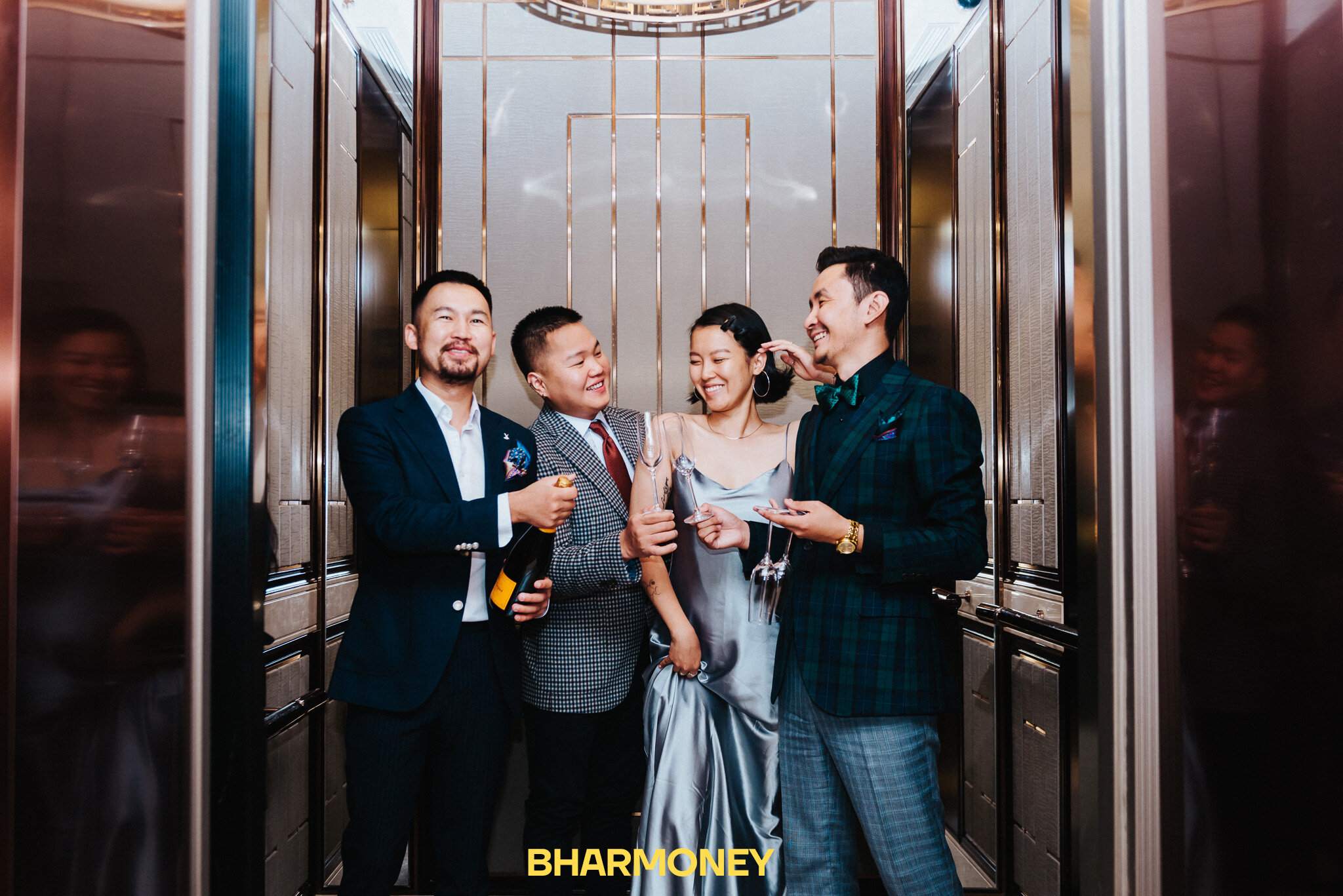
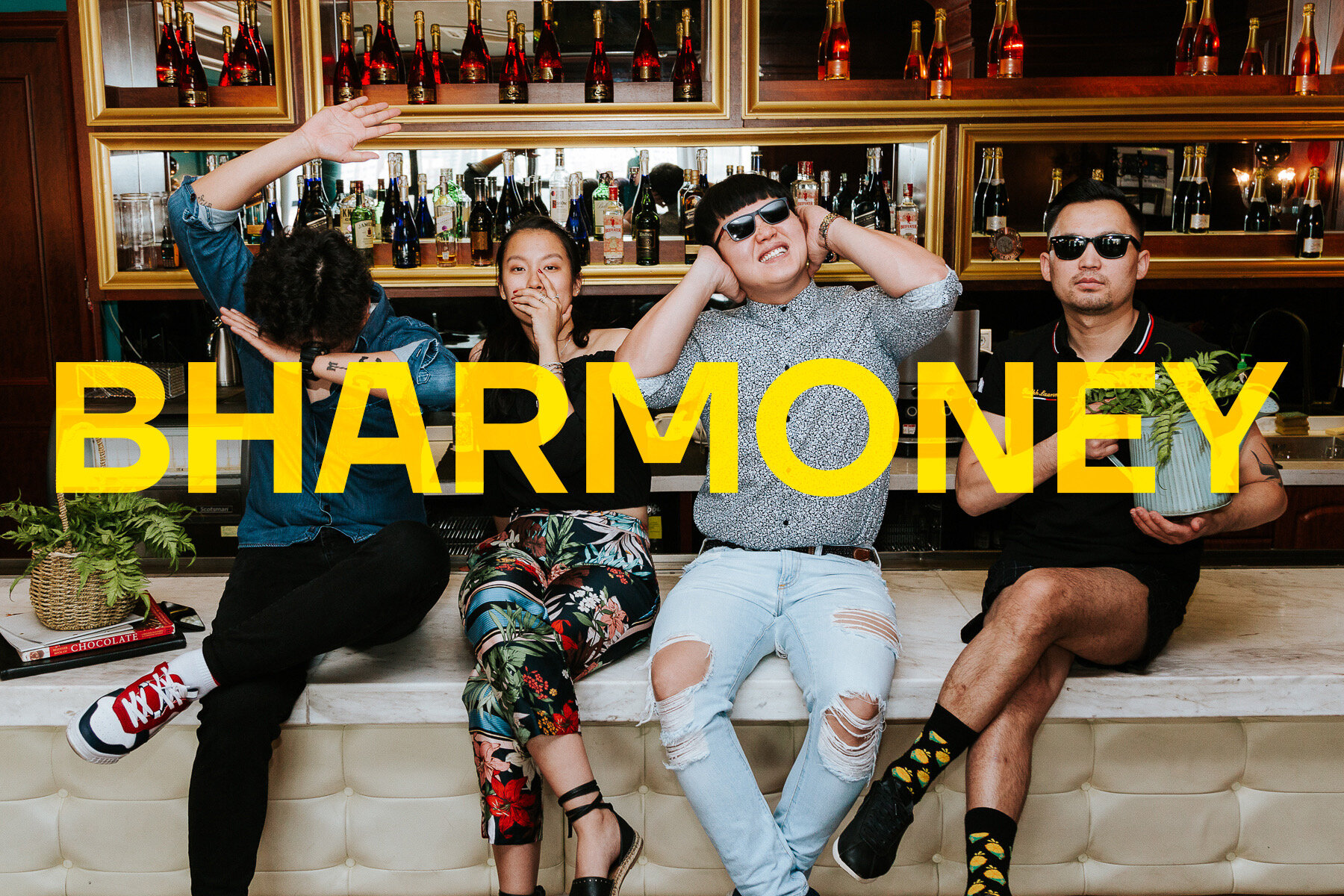
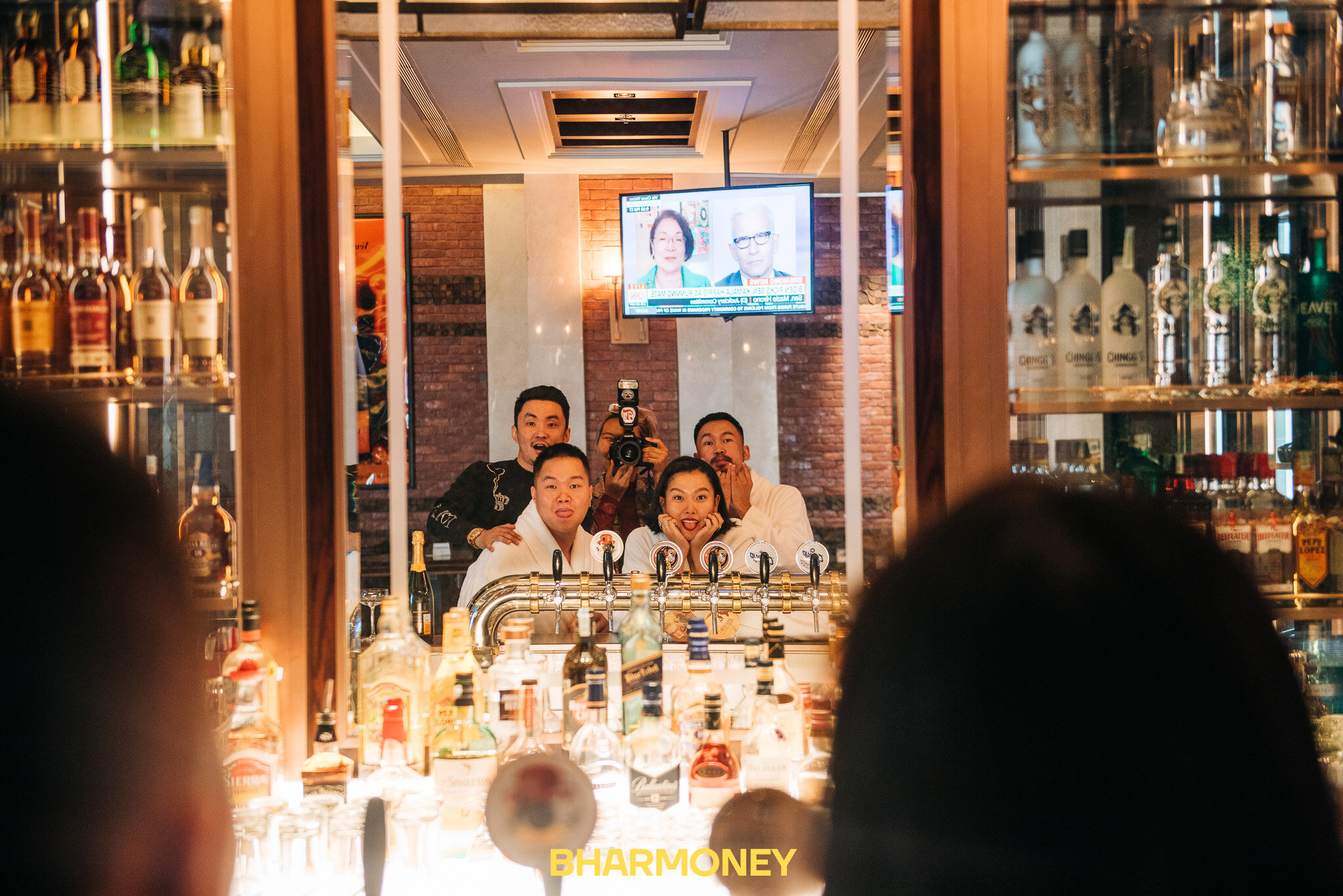
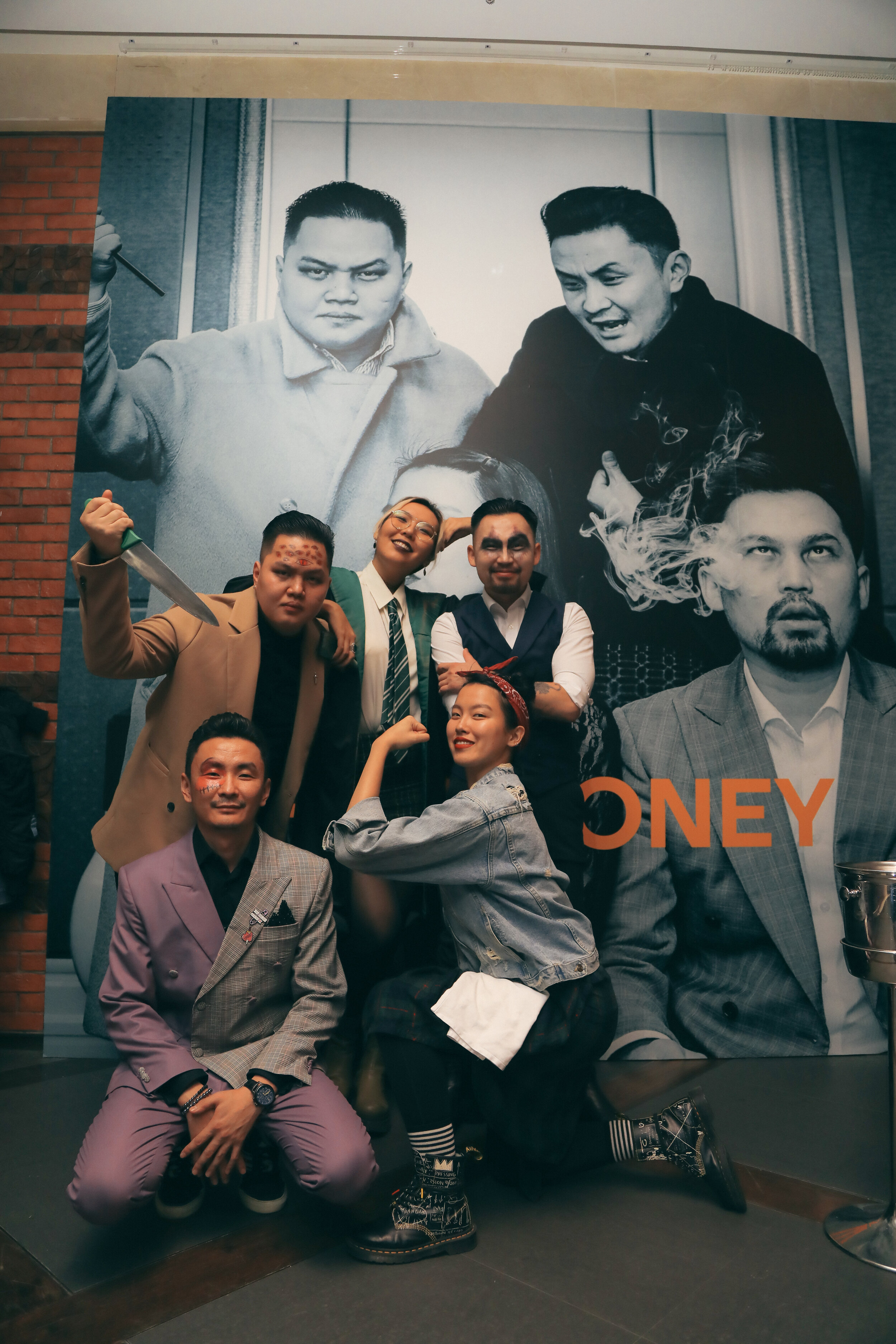
A common misconception about your sector/job?
“Whenever someone mentions alcohol, they always associate it with drunkenness. It is always perceived as a bad thing. The older generation would see this as the worst possible job to have as a woman. ”
Mainly because I was working at night, surrounded by intoxicated people and serving them. If you see it from their point of view, all of the above are not a good mix, but if you see it from how it is evolving and growing as an industry it is completely different from 20 years ago. Nowadays, we get to decide what to serve and who to serve. When there is an overly intoxicated person, we would cut them off and not serve them. That should become a normal thing. We are not here to harm anyone, but this is actually a really great job to have. We are creating art in our own way.
“The technical term of what I do is mixologist. We mix drinks on a very delicate level combining so many different flavors that you have never tasted before. It is a challenging thing to do in Mongolia especially with the limited resources. ”
We also do our best to educate people at the same time. We want to introduce new drinks to people and how to drink, when to drink or what to drink and also when to stop drinking. We actually hold a lot of responsibilities. It is actually a very difficult job. We don’t mix random stuff together and hope it comes out great.
We wanted to break that ideology through Bharmoney and educated people on enjoying alcohol without any complications or consequences. We wanted to make sure cocktails and drinks can be consumed with food for pleasure in a balanced amount. Not too much, not too small, if that makes sense. Whatever they prefer.
How long does it take to plan an event and how do you relax after an event?
It varies depending on the event because we customize everything for every location. We try not to do the same thing again. We always want to make sure it fits the place. We always involve different activities such as music, performance, media, and photos. It has to make sense with everything. Our event photos to our cocktails, everything needs to be within the theme.
As a team we have grown to organize it from 3 days to two weeks. As we gain more experience, we can literally read each other’s mind and if any one of us has an idea, we continue exploring it. At one of the events, we went to the market one morning to look around for ingredients. We were exploring ingredients. We always want it to personalize it as much as we can. We want the people to know that it is coming from us.
We always talk about organizing a family dinner with our partners after an event. Unfortunately, we never follow through with the plan.
Biggest mistake/challenge you have faced at work and how did you overcome this obstacle?
Limited ingredients. Working as a bartender in Mongolia, we have very little resources and we must experiment a lot to provide you with the cocktails you enjoy. Obviously, there are always little mistakes that happen all the time. With that process alone, we can adapt and learn on the job and comprise. Basically, it became our lifestyle, but the silver lining in all of that is it always works out in the end and the road is only beginning.
“One of the biggest challenges I had to face while I was working as a bartender was the sexual harassment I would encounter during my shifts. ”
Touching someone without their consent was a very normal scene and it happened to me once. I couldn’t tolerate that type of situation so I informed my supervisor, but unfortunately the problem couldn’t be dealt with because he had a certain reputation he needed to uphold.
My family has always been supportive of my choices. Always guiding me and providing advice. They trusted me even though they were still questioning where I was headed. They were never against whatever I wanted to do. Kids with supportive families can strive to be successful in whatever they are doing.
How does gender play a role in your industry?
My age and my gender affect how people perceive me and treat me. In some cases, they are very proud of me, complimenting on how I am doing good for my age, and being a female.
“However, I receive a lot of comments associated with my age and gender (i.e.: “You are just a girl”). Also most times they think I would not last in this industry, because I would get married, have kids, and never get back to this industry.”
That is the most common assumption people make of me. In most cases, bartenders would leave their job as soon as they get married or settle down. There is a big stereotype. I want to show them that there is always a way and I can do it right. I want to make sure I do it right and do it good. I wanted to do it until the end in whatever way.
How many female bartenders are there in the UB bar scene?
“When I first came to Mongolia, there were only a handful of female bartenders. But now to my knowledge, there are about 15 female bartenders. It doubled or tripled since I came here. ”
A lot of female bartenders approached me asking for advice on how to start their careers, what to do, when do you start and how do I face the challenges along the way.
What advice would you give them?
Always trust your gut. I believe females are very strong and always had a good premonition. We just need to trust ourselves. We should be able to say something if something feels wrong or we don’t like something or anything that is affecting our freedom. Be brave.
What is your favorite drink/taste?
It depends on my mood and where I am, what I am doing. Come to think of it my all-time favorite drink is the mojito and daiquiri I had when I was in Cuba. The cocktails I had in Cuba were so good. It made me question my skills and everybody else’s skills too. It was just a simple regular that was made in Cuba, but it tasted so much better than any drink I ever had. It wasn’t fancy or professional, yet it was different and so good. I asked what they included in their drink. It was the sugar and mint that grew in Cuba differently. It was not about the skills. It was about finding the best or the right ingredient for the drink. It was how everything came together just so you could have 5 or 10 mins of drinking pleasure. There is a lot of stuff that goes with it.
Could you share your easiest cocktail recipe?
It goes against what I believe in. I believe everybody has their own taste. We are yet to find our favorite drinks. Everybody will have a favorite cocktail. Our job is to help you find it. My recommendation is come find me and I can help you find your taste.
What drinks bring back memories?
We always used to drink Prosecco, it is a very cheap and easy drink. It has this very dry and acidic taste to it that I just love. In addition, it is also a bubbly drink. It just makes me feel something different than any other drinks.
How would you describe Bharmoney events to people who have never attended?
“Don’t see Bharmoney as a huge event. You can see it however you want. You can come for only cocktails, hide in the corner and sip your cocktails. You can come with people. Whatever you like.”
It is an open space. It's not boxed up. You are open to attend it however you want. Our point is to make everybody comfortable and we also want to serve everybody’s needs. We try to consider everything.
When is your next event?
Not any time soon thanks to Covid-19
Where do you see yourself in 5 years?
Let’s keep it a secret for the moment. Let’s just say I have plans.
FUN QUESTIONS
May we ask if you are single or married? What are your thoughts on family planning in Mongolia?
I was actually engaged when I was 22 years old. One of the reasons we broke off the engagement was a long distance. We both had careers set for us that wasn’t crossing paths in the next few years. It was a smart decision from both of us. I believe age doesn’t matter when it comes to this kind of stuff. But at the same time, you want to make sure even if you are marrying young, you want it to be the right decision. So you can always back off, back out, and think really.
“I am not looking to plan a family anytime soon. I have a lot of things to do. Honestly, I don’t think I have the time for it (laughs).”
It is a huge life decision and you don’t want it to be a gamble. Raising children and working in this industry is very challenging. I want to make sure I can get it right.
If you were a superhero, what powers would you have?
I would want the ability to teleport. To be able to go to one place and go back. I can go anywhere I want.
If you could go back in time, what year would you travel to?
1990s. I love old school hip hop. I loved 2Pac so much! One time in high school I dressed up as 2Pac and people started calling me Tpac.
How do you relax? What’s your hobby or where can we find you when you are not working?
Mostly walk around the city and listen to music. It gives me time to think, focus and relax, but I do whatever I feel like doing in the moment.
When you were young, what did you want to be when you grow up?
A professional pianist.
Who is your role model in Mongolia? A living person and why?
Principal Oyuntsetseg Durvuljin. She inspired me to be passionate about everything I do, to enjoy the simplest of things in life, and see the beauty/art in everything.
Do you have any mentors? How did you pick them as mentors?
None at the moment, but Onon Evans (from a previous interview) made me realize I need one ASAP.
If you could compare yourself to another animal, what animal would you be?
Feline, or mama bear. I have 2 very different moods
What’s the best life advice that you’ve received? Who gave this advice?
Balance is key. My dad gave me this advice. It didn’t make much sense at the time, but I literally try to apply it to everything in my life now.
A personal advice you would like to extend to fellow Hobby Alumni?
“I just want to say there isn’t one way to live a life. There is no “one form” or guideline to follow in life. You can graduate from university at 16 or 45; it doesn’t really matter. Whatever fits you, it fits you. Just take your time and do your thing. ”
A personal advice you would like to extend to fellow Hobby students?
Appreciate your time at Hobby School, find your best learning technique, explore and try out new things.
What are your good and bad habits?
“Bad - I worry too much. Good - I quit smoking after 12+ years! ”
Funniest story at work you can share with us?
I’m a better storyteller in person.
If you can pass 1 law globally, what would it be?
Make same-sex marriage legal.
Now if you can fix 1 problem in Mongolia, what would it be?
Bribery.
If you could have dinner with anyone dead or alive who would it be, and why? Also, what would be your first question?
Hayao Miyazaki because I am fascinated by his work and Ghibli films have played a big part of my childhood and adulthood as well. ask him if I can watch all his movies with him as he explains how it all came to him.
Name 3 conspiracy theories you believe in.
The Truman Show like life, multiverse-parallel universe, mandela effect.
Who would you recommend to interview next from Hobby Alumni? And Why?
I would recommend Namuundari Dashdorj (class of 2009), because I am absolutely in love with her artistic visions and taste. I would love it if she could share it with us.
“During my drama/acting school I was working as a bartender and I had to make a choice. It was either work or school. Now that I think about it, I know I made the right choice by choosing work. I dropped out of all 3 schools!”
